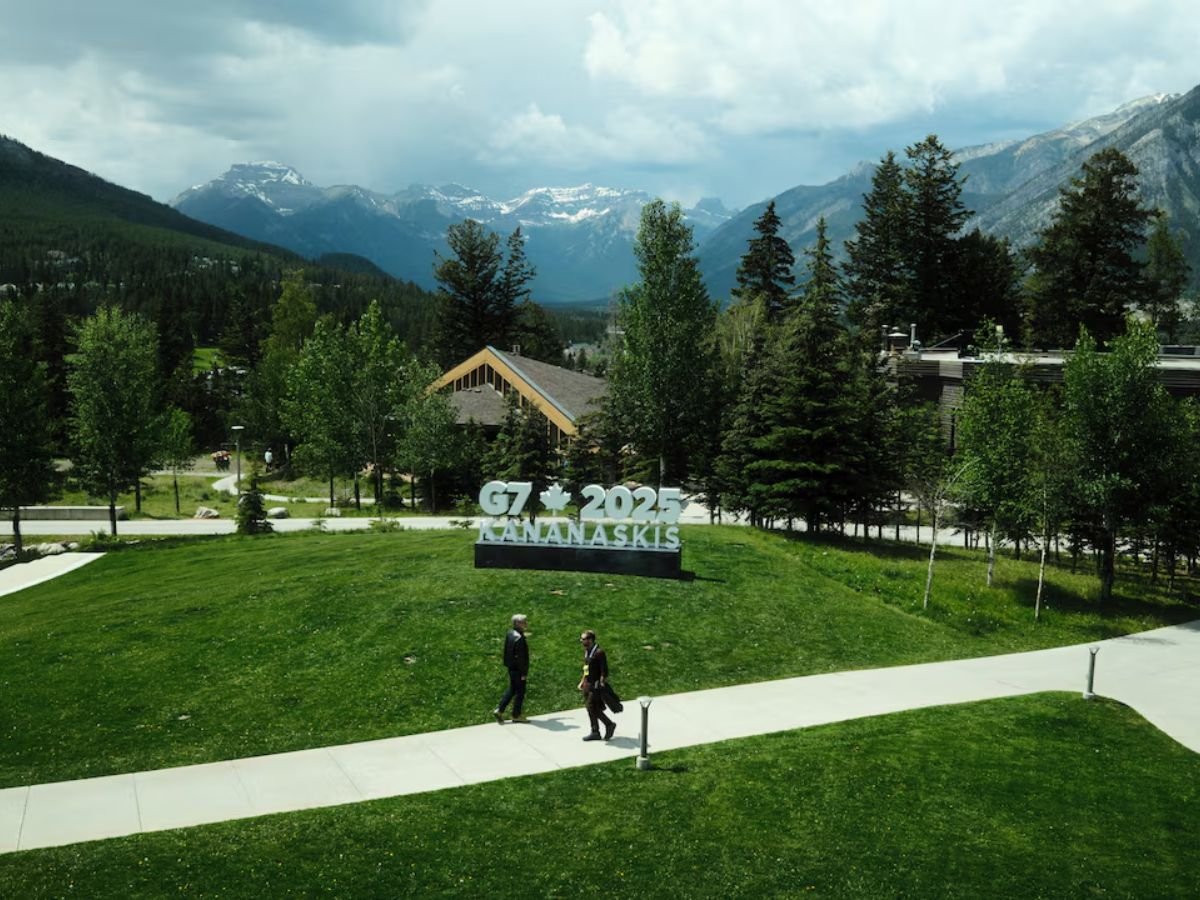Leaders from the Group of Seven (G7) nations convened in Kananaskis, Canada, on Monday to discuss the escalating conflicts in Ukraine and the Middle East, as well as other pressing global issues, Reuters reported. The summit, which runs until Tuesday, comes at a time when rising oil prices and increasing diplomatic tensions are adding to global economic uncertainty.
Economic Concerns and Trump’s Influence on Global Unity
The G7 leaders—representing Britain, Canada, France, Germany, Italy, Japan, the US and the European Union—are grappling with the policy effects of the first five months of Trump’s second term. Trump’s foreign policy has raised concerns among traditional allies, particularly regarding his closer ties to Russia and his decision to impose tariffs on American allies.
The escalating conflict between Israel and Iran is further straining global relations, with oil prices spiking in response to Israeli military strikes on Iranian targets. As a result, Canada has sought to avoid the contentious, all-encompassing communique seen at the 2018 Quebec summit, when Trump withdrew US support for the final statement. Instead, Ottawa is aiming for a more manageable chair’s statement, along with six pre-negotiated declarations on topics like migration, artificial intelligence, and forest fires, the report said.
“The most important goal will be for the world’s seven largest industrial nations to reach agreement and take action,” German Chancellor Friedrich Merz said ahead of his first G7 summit, according to Reuters.
Tensions Over Russia and Ukraine
One of the most sensitive topics on the summit’s agenda is the conflict in Ukraine. Despite NATO’s support for Ukraine, Trump’s stance on Russia has been a major source of concern among European leaders. Trump had suggested that Russian President Vladimir Putin could play a role in mediating peace talks, an idea that was subsequently rejected by French President Emmanuel Macron. Macron emphasised that Russia, which was excluded from the G7 in 2014 after its annexation of Crimea, could not be a neutral mediator, Reuters reported.
“Moscow cannot be a negotiator because it has started an illegal war against Ukraine,” Macron told reporters.
Trump’s comments are seen by some as an indication that Russia, despite its exclusion from the G7, still looms large in US foreign policy. A European diplomat told the news agency that Trump’s remarks suggested a softening of condemnation toward Russia, which could further complicate efforts to maintain a unified G7 stance.
“In the eyes of the US, there’s no condemnation for Ukraine, no peace without Russia, and now even credit for its mediation role with Iran. For Europeans, this will be a really tough G7,” the diplomat said, per Reuters.
The Iran-Israel Conflict: Rising Oil Prices and Diplomacy
In addition to the conflict in Ukraine, the escalating tensions between Israel and Iran are also high on the agenda. Following Israeli airstrikes on Iranian targets early this month, global oil prices surged, adding to the economic strain felt by many G7 nations. Leaders at the summit are hoping to reach a joint statement calling for restraint and a return to diplomatic negotiations, but achieving consensus on this issue is likely to be challenging, the report said.
“We are united. Nobody wants to see Iran get a nuclear weapon, and everyone wants discussions and negotiations to restart,” President Macron reportedly said.
As the summit unfolds, discussions are expected to center on how the G7 can present a unified front, particularly in regard to the price cap on Russian oil, a measure that Trump may choose to opt out of. The goal is to find common ground on issues related to trade, economic stability, and the ongoing geopolitical challenges posed by Iran, Israel and Russia.
Ukraine’s Role at the Summit
Ukraine’s President Volodymyr Zelenskyy is expected to attend the summit on Tuesday, alongside NATO Secretary General Mark Rutte. European officials are hopeful that the G7 summit, along with next week’s NATO summit, will provide an opportunity to convince Trump to take a tougher stance on Russia. Macron emphasised the importance of Ukraine receiving a ceasefire to facilitate a lasting peace.
“The G7 should have the objective for us to converge again, for Ukraine to get a ceasefire to lead to a robust and lasting peace, and in my view, it’s a question of seeing whether President Trump is ready to put forward much tougher sanctions on Russia,” Reuters quoted Macron as saying.
ALSO READ: Who Is Blaise Metreweli, First Female Chief of Britain’s Spy Agency MI6?



